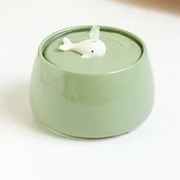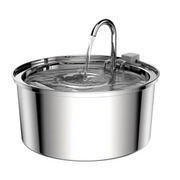Can Cats Eat Eggs?
Cat Water Fountains Australia
Share This Article
Eggs are a common staple in many households, but it's important to understand whether cats can safely consume eggs. This article explores the topic and provides insights for cat owners.
Feeding Eggs to Cats
Eggs can be a nutritious addition to a cat's diet when cooked thoroughly. However, it is important to take certain factors into consideration.
Cooked Eggs
Cooked eggs, such as scrambled or boiled eggs, can be a healthy treat for cats. They are an excellent source of protein and essential amino acids. Ensure that the eggs are fully cooked to avoid the risk of bacterial contamination.
Avoid Raw Eggs
Raw eggs should be avoided as they carry the risk of bacterial infections, such as Salmonella or E. coli, which can be harmful to both cats and humans. Cooking eggs eliminates this risk.
Portion Control
When offering eggs to your cat, ensure they are served in moderation. Excessive consumption can lead to an imbalance in their diet or potential weight gain.
Food Allergies
While allergies to eggs are rare in cats, it is possible for them to develop sensitivities. If you notice any signs of an allergic reaction, such as itching, vomiting, or diarrhea, discontinue feeding eggs and consult your veterinarian.
Cooked eggs can be a nutritious and enjoyable addition to a cat's diet. However, it is important to cook eggs thoroughly, serve them in moderation, and be vigilant for any signs of allergies or adverse reactions. As always, consult your veterinarian for specific dietary recommendations for your feline companion.









